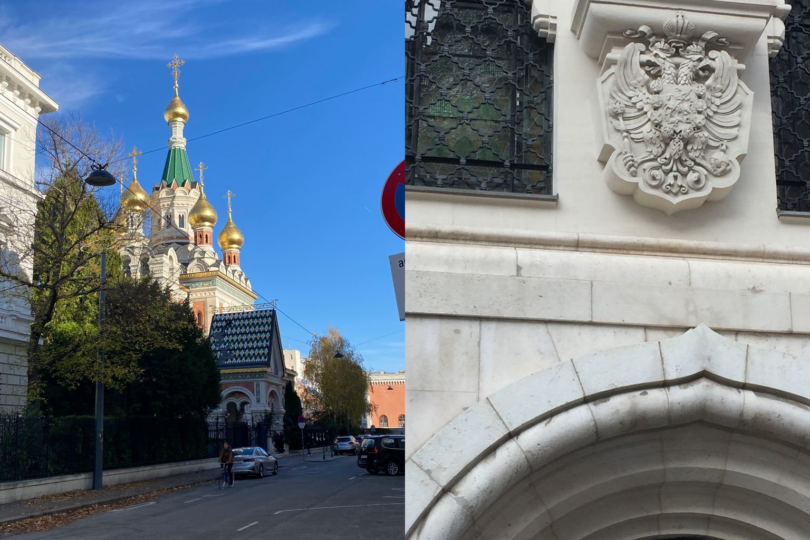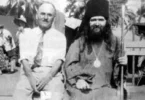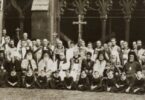The ROCOR Bishops’ Conference began in Vienna on this day in 1943
In my report for September 8, I wrote about the Council of Bishops that elected the new patriarch under the conditions of a totalitarian state. Now, I am going to write about another Bishops’ Council (or rather, Conference) that took place in another totalitarian state: Nazi-annexed Austria in 1943. In the view of Nazi propaganda, this Vienna conference was supposed to denounce the “kommpatriarch” Sergius. The ROCOR wanted to use this event as a real council. Metropolitan Anastassy was allowed to travel from Belgrade. Subdeacon Nicolas Mabin thus describes the conference’s events:
Among the participants were Metropolitan Seraphim of Paris, and Bishop Benedict of Grodno. (…) At the start of the Conference, the hierarchs were joined by two Nazi officials. However, the bishops said that they wanted to discuss Church matters; that would not be possible if the Nazis remained. The Nazi officials left the meeting and the bishops were free to proceed with their work. The assembled bishops went on to condemn Patriarch Sergei for his collaboration with the godless Soviets. “1943: October 3/16. The Council of ROCA Bishops in Vienna (Austria) expressed their view of this ‘election’ in the following statement: ‘It is an uncanonical and political act, which was made to serve the interests of the Soviet communist government and its dictator Joseph Stalin, which was in the crisis of war, seeking the help of the hated and persecuted Orthodox Church… and when that need will be diminished they will renew the persecution…’”
The bishops concluded that the Moscow Assembly which elected the Patriarch was canonically invalid because it failed to follow the benchmark of the All-Russian Council of 1917-1918 by not including any lay representatives, nor any lower clergy, and it did not include all Russian Orthodox bishops. The election was categorized as a political act of puppets of the godless power. By contrast, the Vienna bishops described their own status as a representative of the free part of the Russian Church. Of course, just as the Russian bishops in Russia had to compromise, so also did the Russian bishops outside Russia have to compromise. In a list not dissimilar from that of the Moscow bishops, to the surprise and shock of the Nazi regime, the bishops meeting in Vienna made demands that included:
- There should be free development of Orthodoxy in all occupied territories and that they be unified under the leadership of the Karlovci Synod;
- The clergy should activate its struggle against [atheistic] Communism;
- Russian workers deported to Germany should have free access “to the fulfillment of their spiritual needs”;
- Russian military units attached to the German Army should be supported with chaplains under the jurisdiction of the Karlovci Synod;
- Religious literature should be published in mass editions for people who “had been subjected to the demoralizing influence of Bolshevism;”
- There should be [Russian] broadcasts of religious apologetics;
- The Church should be allowed to establish theological schools, seminaries, and pastoral courses. (Nicolas Mabin, Archimandrite Nicholas Gibbes: From the Russian Orthodox Church in Exile to the Moscow Patriarchate, Historical Studies of the Russian Church Abroad.)
From the very beginning of its foundation, the Russian Church Abroad stood up against attempts by the Soviet Union to seize the former Russian imperial churches abroad – sometimes successfully, and sometimes not. In Vienna, St. Nicholas Church was consecrated in 1899 as part of the embassy in a prestigious Erdberg district of the city (within 2 km from Palace Belvedere). In 1924, the Austrian republic recognized the Soviet Union and transferred to it the embassy compound including the church. The church was closed for worship and used as an embassy warehouse. After the German invasion of the USSR, following the Anshluss of 1938, the property of the embassy was confiscated and used by a Music School (“Akademie für Musik und darstellende Kunst”). In 1943, Metropolitan Seraphim (Lade) of Berlin received the right to share the premises with the music school, and during the 1943 Conference, Archimandrite Gregory (Borishkevich) was consecrated there for the See of Gomel in Belarussia.
Before World War II, the Russian Church Abroad had recognized Metropolitan Sergii (Stargorodskii) as an uncanonical authority. At the Vienna conference, at the initiative of the Germans, the ROCOR refused to recognize him as patriarch. This set the pattern for rejecting all his successors including, in 1990, Patriarch Alexis II.
Source:
Sobor Sviat. Nikolaia v Vene. “Istoriia” [St. Nicholas Cathedral in Vienna. History].










